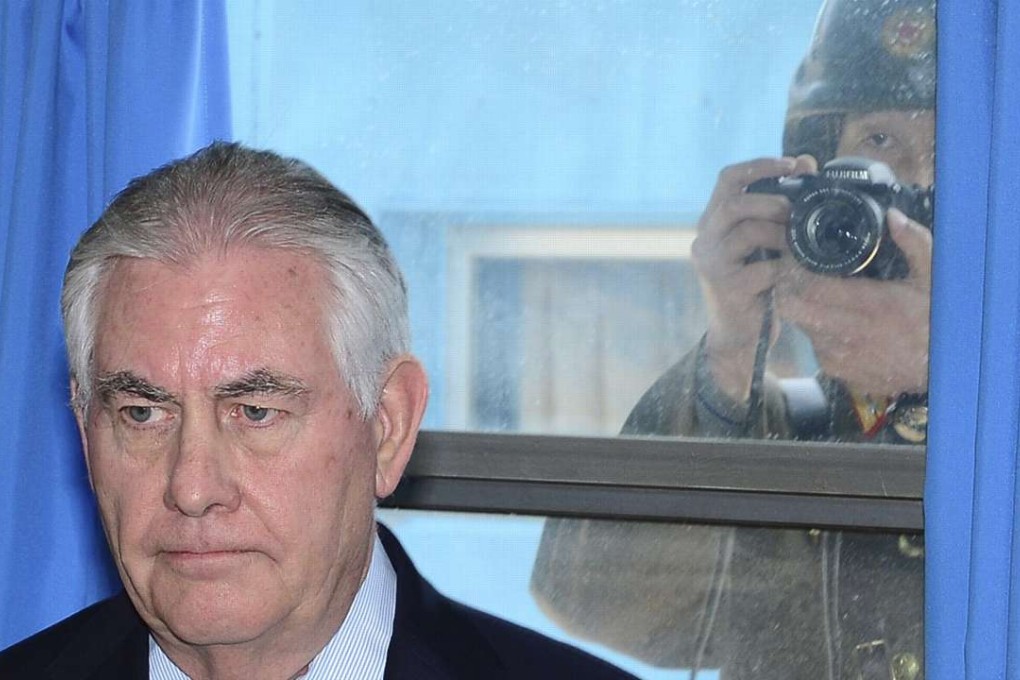US State Secretary Rex Tillerson fires warning of pre-emptive US military strike on North Korea
Top US diplomat heads to China to pave way for Trump-Xi summit but suspicions run deep in Beijing over Washington’s foreign policy

A day before his planned arrival in Beijing on Saturday, US State Secretary Rex Tillerson said that the US might take pre-emptive military action against North Korea if its threats to the United States and South Korea escalated.
Tillerson’s warning – the toughest remarks yet by a Trump administration official against Pyongyang – was followed by a tweet from US President Donald Trump accusing North Korea of “behaving badly” and China of “doing little”.
Speaking in Seoul after visiting the demilitarised zone between the two Koreas, Tillerson said: “Let me be very clear: the policy of strategic patience has ended. We are exploring a new range of security and diplomatic measures. All options are on the table.”
Tillerson said the US did not want a military conflict “but obviously if North Korea takes actions that threaten South Korean forces or our own forces, that would be met with [an] appropriate response. If they elevate the threat of their weapons programme to a level that we believe requires action that option is on the table.”
Trump then weighed in with a tweet: “North Korea is behaving very badly. They have been ‘playing’ the United States for years. China has done little to help!”